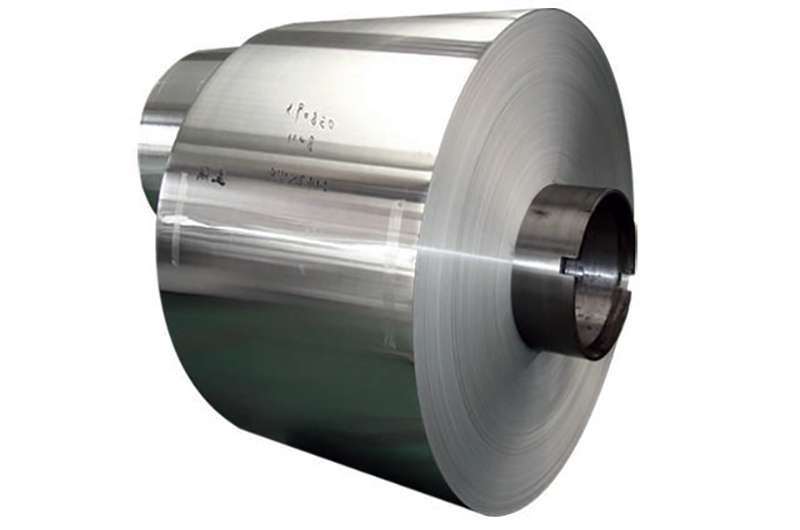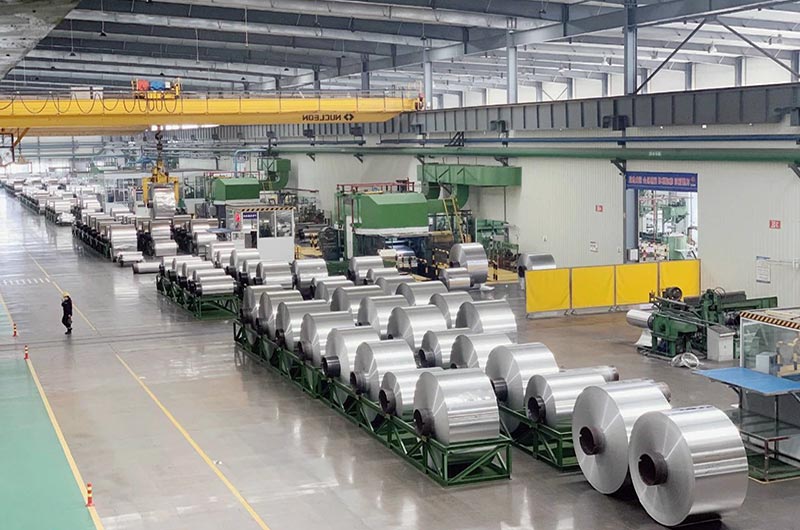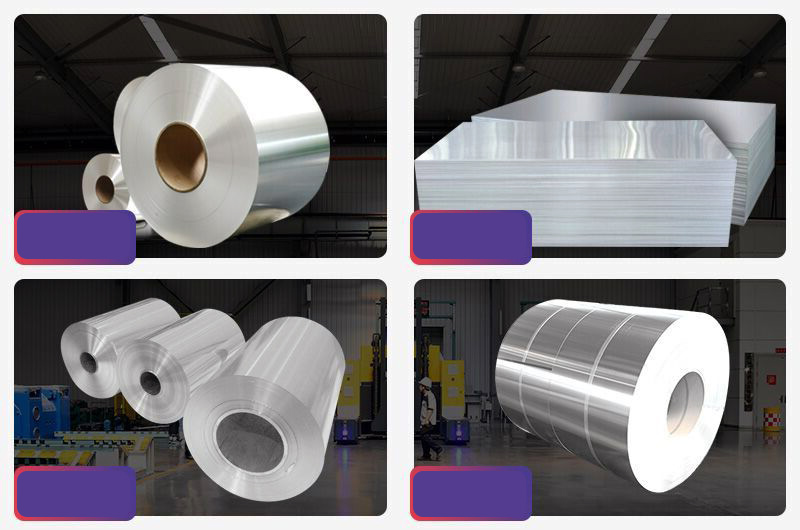Aluminum Coil for Venetian Blind Introduction
Venetian blinds are a popular window covering choice, valued for their versatility, ease of use, and stylish appearance. While various materials can be used to create Venetian blinds, aluminum coil is a common choice due to its unique properties.
In this comprehensive content, we will explore the use of aluminum coil in Venetian blinds, discuss other materials that can be used, highlight the differences between aluminum and alternative materials, list common Aluminum coil Venetian blind styles, explore their advantages and disadvantages, discuss alloy choices, surface treatments, commonly used specifications, and common production challenges.

Why Aluminum Coil for Venetian Blinds?
1. Versatility
Aluminum coil is a versatile material that allows for the creation of Venetian blinds in various styles and designs. These blinds can be customized to fit different window sizes and interior décor schemes.
2. Lightweight Nature
Aluminum is exceptionally lightweight, making it easy to install and operate Venetian blinds. This lightweight feature ensures the blinds can be raised and lowered effortlessly, enhancing user convenience.
3. Durability
Aluminum is known for its durability and resistance to corrosion. This makes it an ideal choice for Venetian blinds, which are often exposed to moisture, sunlight, and temperature variations.
4. Low Maintenance
Aluminum Venetian blinds are easy to maintain. They are resistant to rust and require only occasional cleaning to keep them looking pristine.
5. Aesthetic Options
Aluminum coil allows for a wide range of finish options, including various colors and textures, enabling customization to match different interior design styles.
Alloy Choices for Aluminum Coil Venetian Blinds
Aluminum Venetian blinds are typically made from aluminum alloys chosen for their ideal properties. The choice of alloy may vary based on the specific requirements of the blinds. Commonly used alloys for Venetian blinds include:
- 5052 Aluminum coil for venetian blind: This alloy offers excellent corrosion resistance and is commonly used in outdoor applications where exposure to moisture is a concern.
- 6061 Aluminum coil for venetian blind: 6061 is known for its strength and durability. It is often used in heavy-duty Venetian blinds or for commercial applications.

Surface Treatments for Aluminum Coil Venetian Blinds
1. Anodized Aluminum coil for venetian blind
Anodization is a common surface treatment for aluminum coil Venetian blinds. It enhances the aluminum's corrosion resistance and provides an attractive finish.
2. Powder Coating Aluminum coil for venetian blind
Powder coating offers a durable and aesthetically pleasing finish. It can be applied in a wide range of colors and textures to match interior design schemes.
Commonly Used Specifications for Aluminum Coil Venetian Blinds
The specifications for aluminum coil Venetian blinds can vary based on the manufacturer and product design. Common specifications include slat width, slat thickness, and slat length.
Standard slat widths often range from 1 inch to 2.5 inches, while slat thickness varies from 6mm to 25mm.
Other Materials for Venetian Blinds
While aluminum is a popular choice for Venetian blinds, other materials are also used. These materials include:
1. Wood
Wooden Venetian blinds offer a natural and warm appearance. They are often chosen for their aesthetic appeal and ability to complement traditional and rustic interior designs.
2. Faux Wood
Faux wood blinds are made from synthetic materials that mimic the appearance of real wood. They provide the look of wood blinds while offering enhanced durability and moisture resistance.
3. PVC (Polyvinyl Chloride)
PVC Venetian blinds are known for their affordability and durability. They are suitable for high-moisture areas, such as bathrooms and kitchens.
4. Fabric
Fabric Venetian blinds are made from various materials, including cotton, polyester, and linen. They offer a softer and more textured appearance, making them suitable for bedrooms and living rooms.
Differences Between Aluminum and Alternative Materials
1. Durability
Aluminum is highly durable and resistant to corrosion, making it suitable for both indoor and outdoor use. Wood and fabric blinds are less durable and may not perform well in areas with high humidity.
2. Moisture Resistance
Aluminum is naturally moisture-resistant, making it an ideal choice for humid environments. Wood and fabric blinds can warp or become damaged when exposed to moisture.
3. Aesthetics
Each material offers a distinct appearance. Aluminum provides a modern and sleek look, while wood and fabric blinds offer a more traditional and soft feel.
4. Cost
The cost of Venetian blinds can vary significantly based on the material used. Aluminum blinds are typically more affordable than real wood blinds, but more expensive than PVC or fabric alternatives.

Disadvantages of Aluminum Coil Venetian Blinds
1. Limited Insulation
Aluminum blinds do not provide significant insulation, and they may not be the best choice for maintaining energy efficiency in a room.
2. Noise
Aluminum blinds can be noisy when being raised or lowered, which can be a drawback in quieter settings.
3. Susceptibility to Denting
Aluminum blinds can be susceptible to dents if they are accidentally bumped or hit with force.
Common Aluminum Coil Venetian Blind Styles
1. Horizontal Blinds
Horizontal aluminum Venetian blinds are the most common style. They feature horizontal slats that can be adjusted to control light and privacy.
2. Vertical Blinds
Vertical aluminum Venetian blinds are designed for larger windows and sliding glass doors. They consist of vertical slats that can be rotated to control light and provide privacy.
3. Mini Blinds
Mini blinds are a variation of horizontal aluminum blinds with narrower slats. They are ideal for smaller windows and spaces.
4 Micro Blinds
Micro blinds have even smaller slats than mini blinds, offering a compact and sleek appearance. They are often used for modern interiors.
Common Problems in the Production Process
1. Slat Warping
Slat warping can occur if the aluminum slats are not properly coated or treated to withstand temperature variations.
2. Inaccurate Slat Length
Inaccurate slat length can result from production errors, leading to difficulties during installation.
3. Slat Damage
Damage to slats can occur during the manufacturing and transportation processes, requiring careful quality control.
Conclusion
Aluminum coil Venetian blinds offer an array of advantages, including versatility, lightweight nature, durability, and low maintenance. Their ability to control light and privacy, coupled with customization options, makes them a popular choice for homeowners and businesses.
While aluminum Venetian blinds may not provide significant insulation and can be susceptible to noise and denting, their benefits often outweigh these disadvantages.
With proper alloy selection, surface treatments, and quality control in the production process, aluminum Venetian blinds can enhance the aesthetic and functionality of any space.

